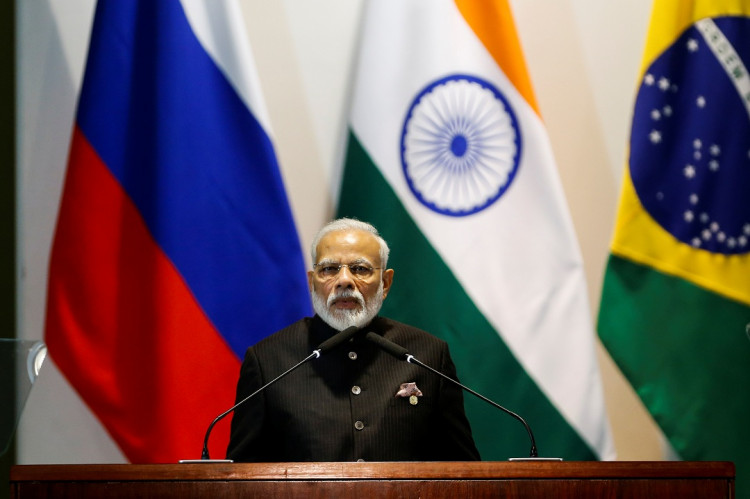As vote counting for the Indian elections proceeds, Prime Minister Narendra Modi's Bharatiya Janata Party (BJP) holds a tentative lead. However, early results indicate the party has not secured an overwhelming victory, causing a significant drop in Indian stocks, bonds, and the rupee.
On Tuesday, India's major indices, the Nifty and Sensex, both plummeted by 8% during intraday trading, closing with nearly 6% losses, marking the steepest decline in four years. This comes after Monday's polls suggested the BJP would win an overwhelming majority, pushing the indices to record highs.
The latest vote tally shows the BJP-led National Democratic Alliance (NDA) leading in 287 out of 543 seats in the Lok Sabha, far below the 351 seats secured in 2019 and the campaign's ambitious goal of "400 seats." In contrast, the Indian National Development Inclusive Alliance (I.N.D.I.A.), led by the Indian National Congress, is leading in 187 seats. Final results are expected late Tuesday or early Wednesday.
Kranthi Bathini, Director of Equity Strategy at Wealthmills Securities, commented, "The NDA's numbers are below expectations. Hence, we are seeing profit-taking as investors grow nervous. We need to wait another hour for clearer results, but if this trend continues, profit-taking could expand."
Simultaneously, the Indian bond and currency markets also faced declines. The rupee fell 0.5% against the dollar, and the benchmark 10-year Indian government bond yield rose by 10 basis points to 7.04%.
Gaurav Dua, Senior Vice President and Head of Capital Market Strategy at Sharekhan, remarked that the early trend is unfavorable for the markets. However, as long as BJP/NDA manages to secure the 272 seats needed to form a government, the overall market decline will be temporary.
The market's current concern is that a narrow victory for Modi's coalition could result in another coalition government, potentially hindering economic reforms.
V K Vijayakumar, Chief Investment Strategist at Geojit Financial, stated that It now appears very likely that Modi's party will not achieve an overwhelming majority. The market is worried that the new government may focus more on welfare policies rather than reforms.
Increased welfare spending could lead to a larger fiscal deficit. Historically, India has seen budget deficits expand under coalition governments.
Madhavi Arora, Chief Economist at Emkay Global, noted that the size of Modi's victory could determine the strength of the next round of reforms in land, labor, and capital sectors.






